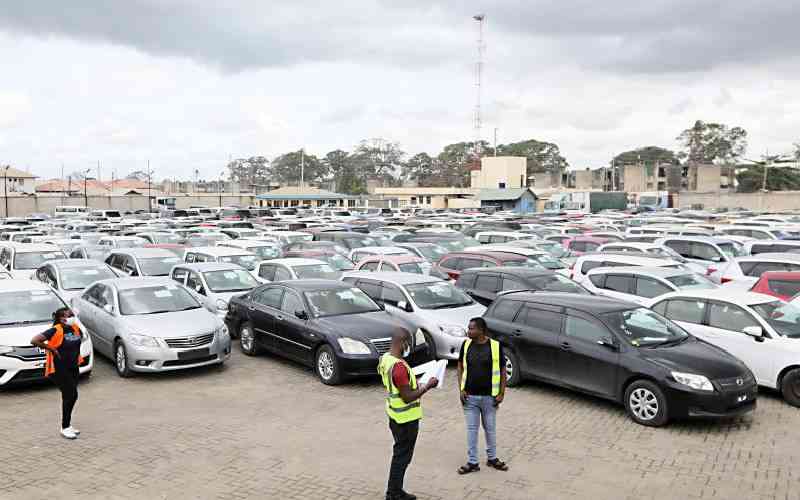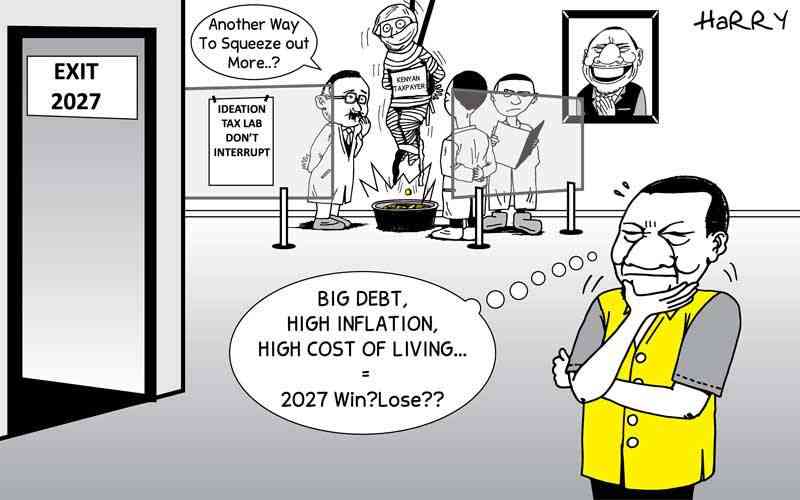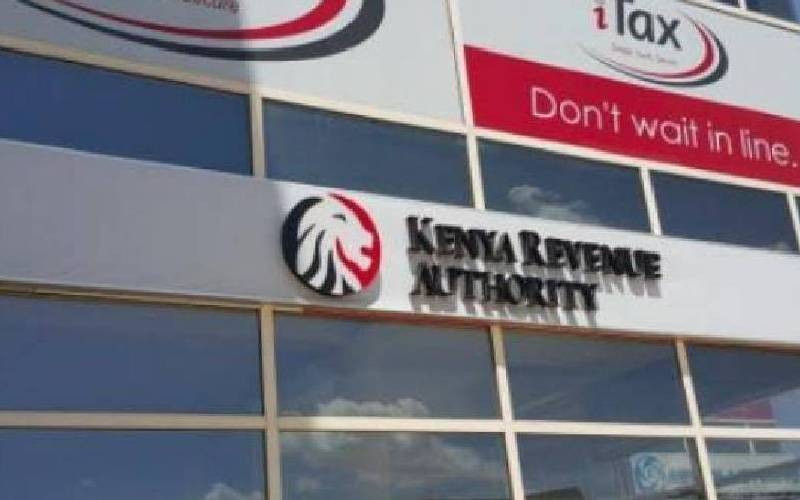
Some of the used imported cars at the Kenya Revenue Authority yard in Mombasa. [File, Standard]
Used car traders have filed a lawsuit at the High Court in Mombasa to stop the Kenya Revenue Authority's (KRA) new tax rule on imported cars from taking effect on July 1.
In a case filed on Friday, the Car Importers Association of Kenya (CIAK) argues that the Kenya Revenue Authority's (KRA) action will increase the prices of some cars by 145 per cent.
Justice Jairus Ngaah, who heard the application filed under a certificate of urgency, ordered the Kenya Revenue Authority to be served immediately and respond within seven days.
“I have read the applicant’s application dated June 20 this year, filed under certificate of urgency. I hereby certify the application as urgent and direct that the same, together with the petition, be served forthwith to the respondents’ said Justice Ngaah.
In the suit papers, CIAK chairman Peter Otieno accuses KRA of introducing a discriminatory tax rule against vehicles imported by the common man, which has been attracting less tax.




“The CRSP was developed unilaterally and disseminated without engaging the public or the industry stakeholders as prescribed by our constitution and court orders,” said Otieno.
Otieno, represented by lawyer Ngibuini Gikandi, said cars such as Swift, Mazda Demio, and Toyota Vitz, widely preferred by Kenyans, will be expensive if the new rule comes into force.
He argued that KRA violated the law requiring public participation before implementing such a decision, ensuring fair administrative action and transparency in financial matters.
He said, in stark contrast, larger and more expensive vehicles such as Volkswagen and Lexus LX570 are the beneficiaries, as they are to get reduced tax obligations under the new tax rule.
“I believe the implementation of the new CRSP value in its current form is tone-deaf to economic realities facing the majority of Kenyans and is contrary to the constitutional principles of equity, fairness, inclusivity, and socio-economic justice,” said Otieno.
The association officials explained that tax policies should be guided by economic rationality and social equity, shielding vulnerable populations from disproportionate burdens and imposing progressive obligations.
According to them, vehicles that are not only essential but indispensable to daily life and income generation for the common man, such as the Toyota Vitz, Mazda Demio and Suzuki Swift, have seen dramatic and punitive spikes in tax rates, while luxury vehicles like the Lexus LX 570 and Volkswagen associated with higher class affluence have enjoyed tax reductions.
Otieno complained that despite orders directing the KRA and any government agency not to subject Kenyans to such discrimination in 2019, the KRA was at it again, going against the court's order.
He said a judgment in a similar case he had filed found that the tax policies regarding the assessment of tax for imported cars were ambiguous and asked KRA to do public participation before implementing any tax changes.
Stay informed. Subscribe to our newsletter
Otieno said instead of implementing what the court had ordered, KRA is set to start implementing the tax rule detrimental to the public without public participation.
“I had previously challenged a similar breach in Mombasa High Court constitutional case no. 190 of 2018, car importers vs Kenya Revenue Authority, where the High Court declared a previous CRSP schedule unlawful for want of public participation,” said Otieno.
He accused KRA of disregarding the court's order to conduct public participation for scrutiny and input before it came up with such tax laws.
He says the newly published tax policies omit a significant number of commonly imported vehicle models and trim variants, thereby exposing vehicle importers to arbitrary, unpredictable, and potentially inflated tax assessments.
“The absence of an official list grants undue discretion to customs officers and undermines objective consistency that the CRSP is meant to guarantee,” said Otieno.
He stated that the new tax rule would lower sales of imported vehicles and jeopardise their business.